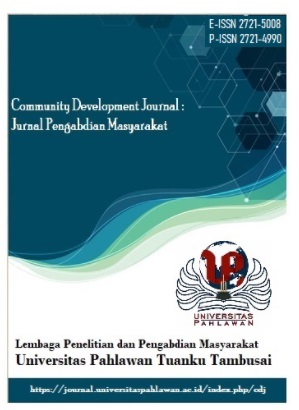ANALYSIS OF ILLOCUTIONARY ACTS IN DONALD TRUMP’S STATE OF THE UNION ADDRESS
DOI:
https://doi.org/10.31004/jrpp.v7i4.37499Keywords:
Illocutionary Act, Illocutionary Force, State Of The Union Address, Donald TrumpAbstract
The analysis discusses the illocutionary acts and forces in Donald Trump’s 4th of February, 2024 State of the Union address. Based on the analysis that has been conducted, it aimed to interpret and describe the illocutionary acts and forces in Donald Trump’s State of the Union address. A qualitative method was used toanalyze this research. The research also applied Searle and Bach and Harnish’s theory. Searle’s theory is used to interpret the illocutionary acts, whereas Bach and Harnish’s theory was used as an indicator of the illocutionary forces. The results of the analysis found all five of the classifications of illocutionary act, which consisted of a total of twenty-two samples, namely, assertives, directives, commissives, expressives, and declarations. In the analysis results, assertives were predominantly found in Donald Trump’s State of the Union address with the total of 266 data, which dominantly described how important the act of assertive is in political discourse as it is used as a way to persuade the hearer. The remaining acts that were found are directives with the total of twenty-eight data, commissives with the total of fourteen data, expressives with the total of twenty-two data, and declrations with the total of two data. The statements of Donald Trump that were analyzed did not include all of the classifications of illocutionary forces by Bach and Harnish, with assert as the dominant force in assertive act, requesting in the directive act, promising in commissive act, and thanking in expressive act. The act of declaration does not have illocutionary force.References
Alfarisi, F, 2020. Indirect Speech Act in Advertisement Selected Videos on “Grammarly” Youtube Channel. Andalas University, Padang.
Arifin, I.F, 2021. The Illocutionary Acts Used in the Character Guest Star by Ellen Degeneres Show: A Pragmatic Analysis. Hasanuddin University.
Atusaadah, M., Zuindra, Z., 2022. Illocutionary Acts in President Joe Biden’s Speech. ling 29, 55. https://doi.org/10.24843/ling.202S2.v29.i01.p07
Austin, J.L., 1962. How to Do Things With Words, William James lectures.
Bach, K., Harnish, R.M., 1984. Linguistic Communication and Speech Acts. Cambridge, Mass. Mit Press.
Birner, B.J., 2013. Introduction to Pragmatics.Wiley-Blackwell
Clark, B., 2021. Pragmatics: The Basics, 1st ed. Routledge, London. https://doi.org/10.4324/9781003197263
Creswell, J.W., 2014. Research design: qualitative, quantitative, and mixed methods approaches, 4th ed. ed. SAGE Publications, Thousand Oaks.
Creswell, J.W., Poth, C.N., 2018. Qualitative inquiry & research design: choosing among five approaches, Fourth edition. ed. SAGE, Los Angeles.
Cutting, J., 2002. Pragmatics and Discourse - A Resource Book for Students. Routledge
Juliven, A., 2023. The Directive Forms of Illocutionary Act in the Transcript of Vladimir Putin's Speech (2022).Universitas Dehasen.Bengkulu
Juwita, C., Inayah, R., 2021. Pragmatics Study of Indirect Speech Acts in Governor Ridwan Kamil's Victory Speech.839-846
Khodijah, S., 2020. Illocutionary Act in Political Debate. Journal of Language Intelligence and Culture 1, 264–282. https://doi.org/10.35719/jlic.v1i03.39
Leech, Geoffrey N., 1983. Principles of Pragmatics. New York, Longman London and New York.
Maharani Saskia Puteri, M. Bahri Arifin, R Famala Eka Sanhadi, 2020. The Analysis of the Illocutionary Acts in Theresa May’s Britain, the Great Meritocracy Speech. Ilmu Budaya: Jurnal Bahasa, Sastra, Seni dan Budaya 4, 568–583. https://doi.org/10.5281/ilmubudaya.v4i4.3028
Marklund, E., 2023. Promises, Promises Mr. President: A Study of Commissive Speech Act Usage in 21st Century American Presidential Inaugural Addresses. Digitala Vetenskapliga Arkivet 2. diva.org:su-214047. diva2:1729676
Mulyana, L., Engliana, E., 2021. Direct and Indirect Illocutionary Speech Acts on Donald Trump's Victory Speech in 2016. inference 4, 60. https://doi.org/10.30998/inference.v4i1.6850
Obidovna, D.Z.,2023. The Notion of Illocution in the Theory of Speech Acts by John Austin. inscience
Remarks by President Trump in State of the Union Address – The White House [WWW Document], 2020. trumpwhitehouse.archives.gov. URL https://trumpwhitehouse.archives.gov/briefings-statements/remarks-president-trump-state-union-address-3/
Samuel Gyasi Obeng, Hartford, B., 2008. Political Discourse Analysis. Nova Science Publishers, New York.
Searle, J.R., 1979. Expression and Meaning: Studies in theTheory of Speech Acts, Nachdr. ed. Cambridge Univ. Pr, Cambridge.
Searle, J.R., 2004. Intentionality : an essay in the philosophy of mind. Cambridge University Press, Cambridge Cambridgeshire ; New York.
Searle, J.R., & Vanderveken, D., 1985. Foundations of Illocutionary Logic. Cambride University Press.
Su, J., 2021. Transitivity Analysis of 2018 State of the Union Address by President Donald Trump. OALib 08, 1–15. https://doi.org/10.4236/oalib.1107563
Yang, Y., Wang, J., 2020. An Analysis of Inaugural Address Of President Rodrigo Duterte’ Speech Act. European Proceedings of Social and Behavioural Sciences 89, 1–796. https://doi.org/10.15405/epsbs.2020.10.02.55
Yule, G., 2010. The Study of Language, Cambridge, Fourth Edition
Downloads
Published
How to Cite
Issue
Section
License
Copyright (c) 2024 I Gusti Agung Hannytiananda

This work is licensed under a Creative Commons Attribution-ShareAlike 4.0 International License.






